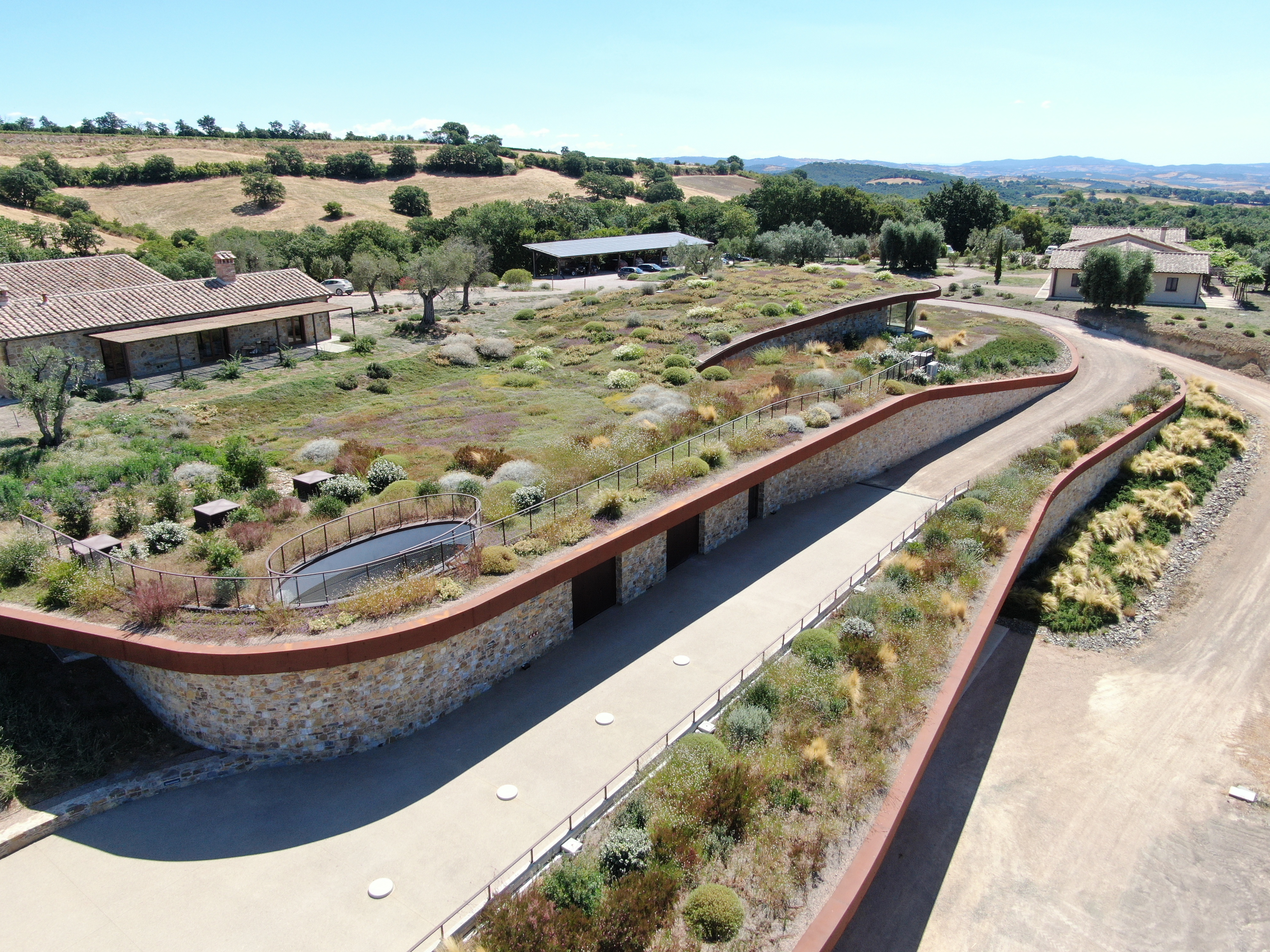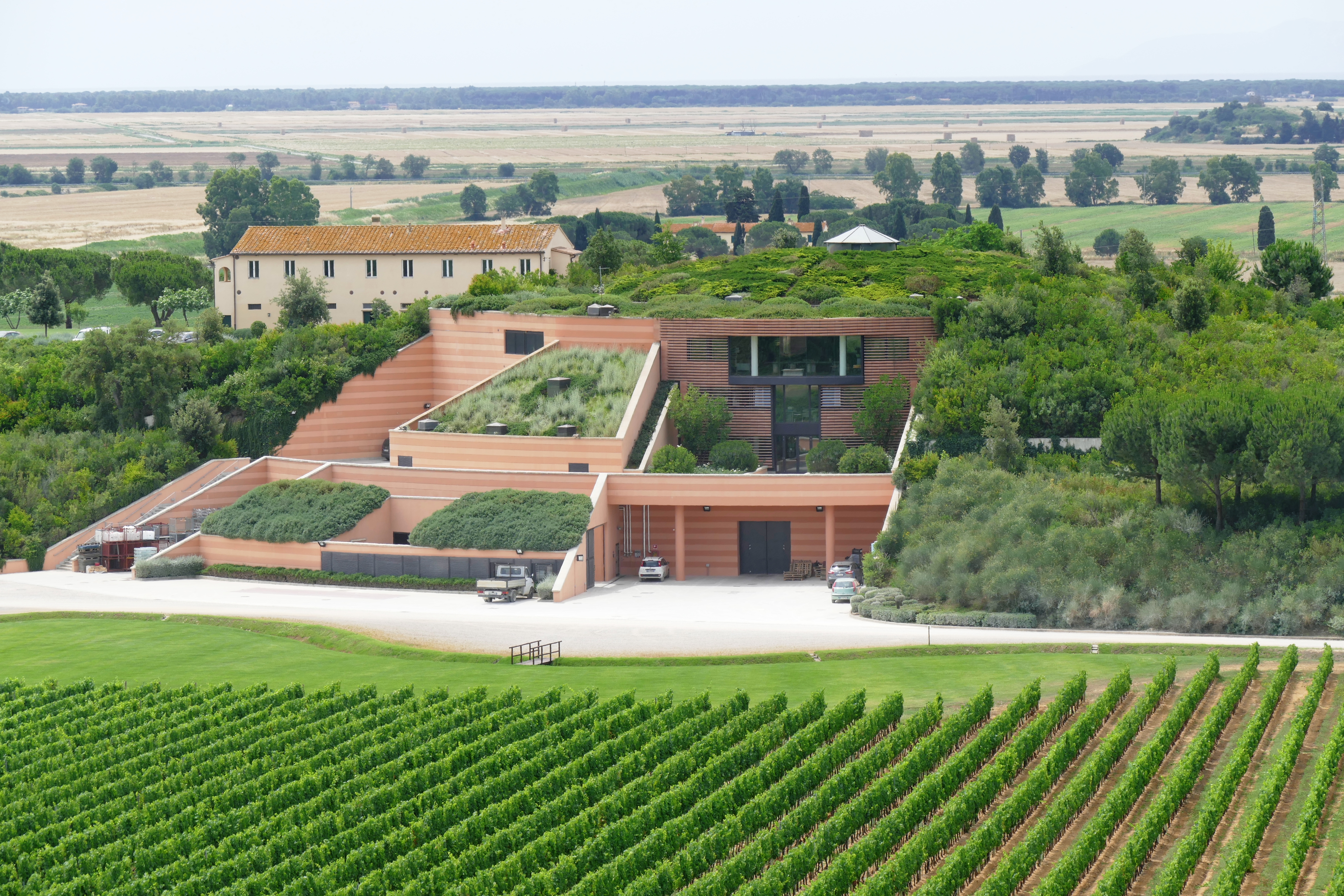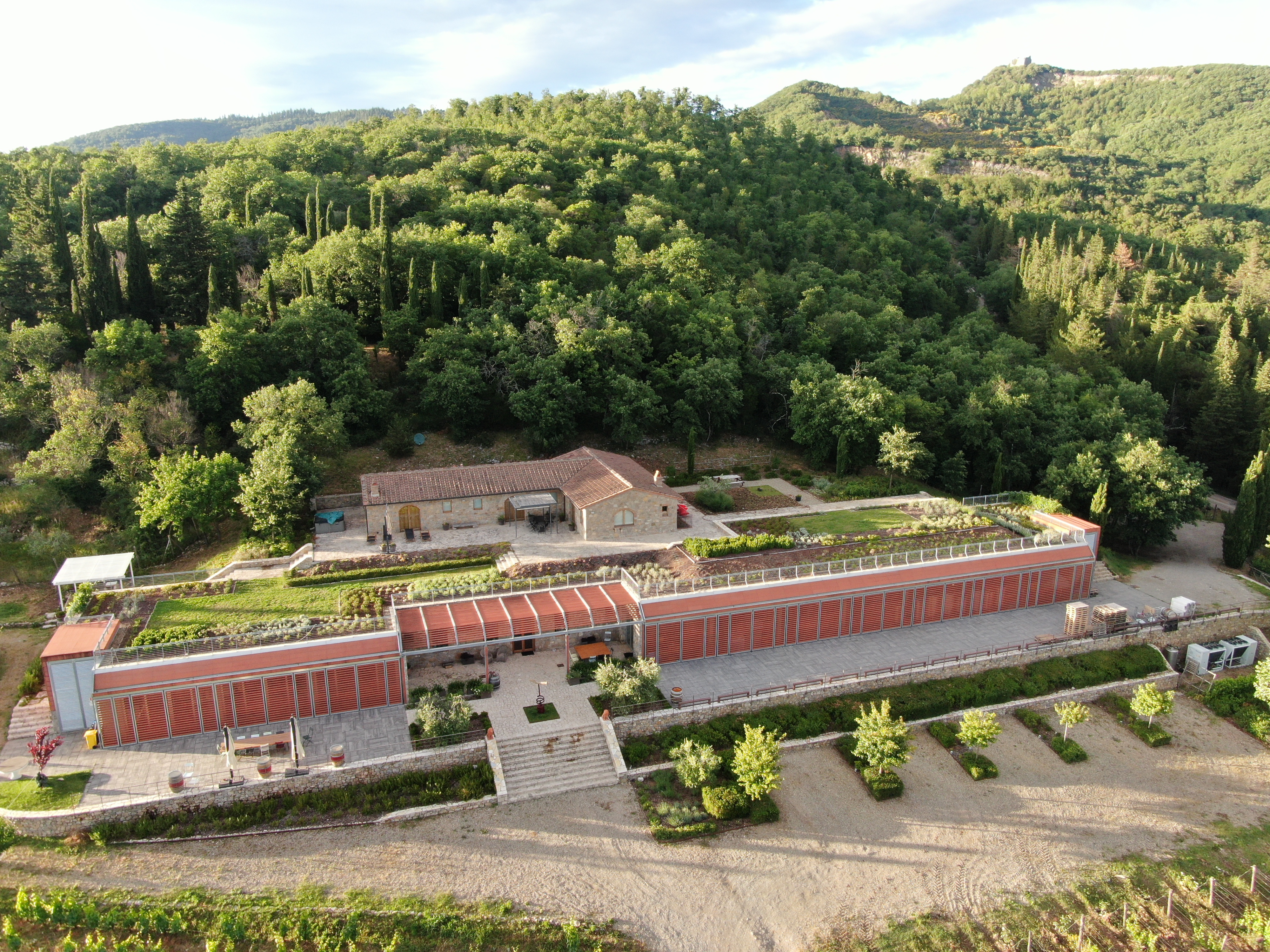Hanging Green for Wine Cellars: Innovation and Sustainability
Respect for tradition and the environment
In today's context, where sustainability and integration environment have become imperative priorities, designers and winery owners are faced with the challenge of innovate while maintaining respect for tradition and the environment. Green roof systems are optimal solutions, as they combine functionality, ecological responsibility and the aesthetic quality of the building. This convergence of design and nature not only enriches the aesthetic value of basements, but also ensures superior energy performance, reducing environmental impact and promoting biodiversity.


Harmony with the Landscape
Designers and developers are increasingly called upon to consider how their their structures fit into the landscape fabric, especially
in historically and naturally rich settings such as Italian vineyards.
The adoption of green roofs is not just an aesthetic choice, but a strategic decision that allows wineries to dialogue with the surrounding environment, improving visual and functional continuity with the landscape. These green roof spaces become elements of connection between the modernity of the structures and the tradition of the area, while providing a favorable habitat for local flora and local fauna and reinforcing the commitment to the conservation of resources natural resources.
Technical and Environmental Benefits
The implementation of green roofs in wineries not only contributes to to energy conservation, but positively affects the
indoor microclimate, which is essential for optimal wine storage.
The ability of a green roof to mitigate thermal fluctuations provides a stable environment for wine aging, reducing the
need for artificial energy interventions. In addition, this solution contributes significantly to sound insulation, stormwater management and to increasing the thermal inertia of the building, resulting in improved indoor comfort and a reduction in operating costs. These aspects are particularly relevant to designers and owners who aim to optimize the functionality and energy efficiency of wineries, while ensuring while providing a high-quality wine product.


